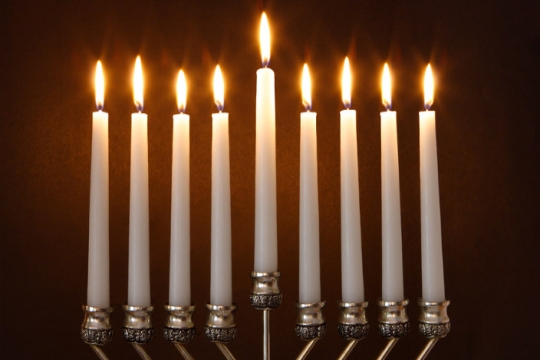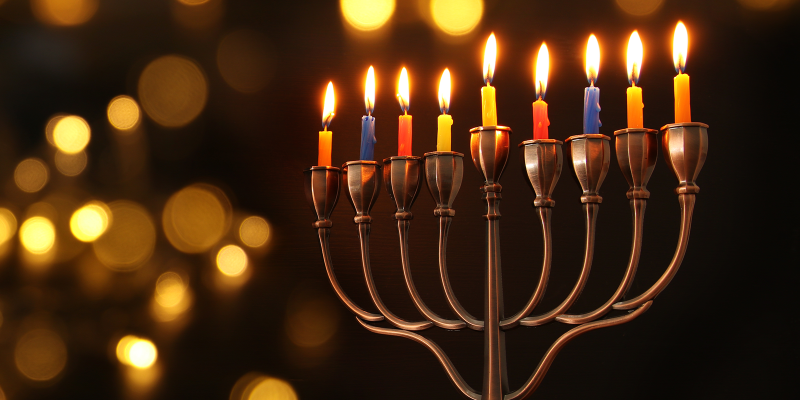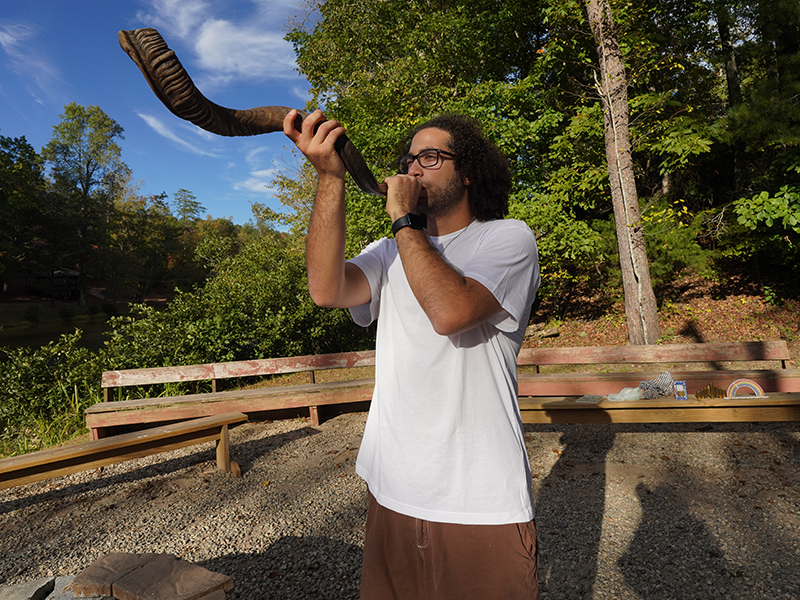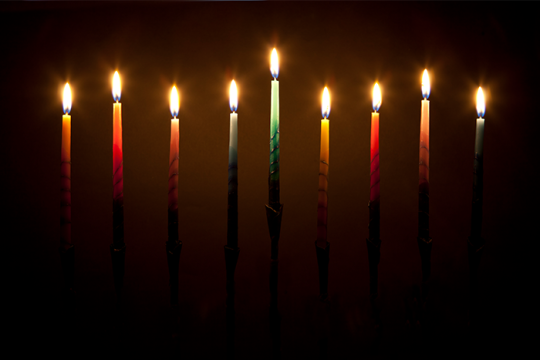
What is Hanukkah?
Hanukkah, one of the most widely observed Jewish holidays, is a festive eight-day celebration that for many people falls during the darkest, coldest season of the year. Also called the Festival of Lights, the holiday brings light, joy, and warmth to our homes and communities as we celebrate with candles, food, family, and friends. Light comes literally, with the lighting of an additional candle each day, and metaphorically, through a newer emphasis on charitable donations and a commitment to during the holiday. Hanukkah (alternately spelled Chanukah), meaning "dedication" in Hebrew, commemorates the victory of a small group of Jewish rebels (led by Judah Maccabee and his brothers, collectively known as “the ”) over the armies of Syria in 165 B.C.E. and the subsequent liberation and "rededication" of the Temple in Jerusalem. Modern celebrations of Hanukkah focus on family and friends and include the lighting of the Hanukkah (also called a ); singing and playing special songs and games (); and eating foods prepared in oil including , , bimuelos (fried dough puffs) and keftes de prasas (leek patties).
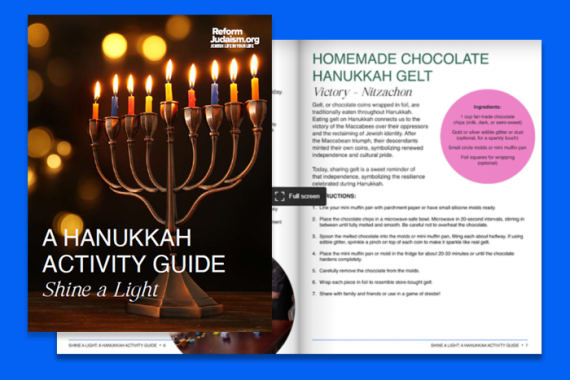
Celebrate Hanukkah with a Free Activity Book!
These resources will provide kids with hours of entertainment and help them learn about the story and rituals of Hanukkah.
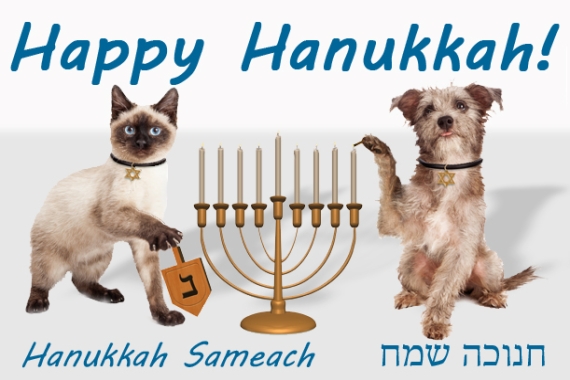
Send Hanukkah Greetings
Create free ecards to send to friends and family -- and add a recipe, video, or blessing -- to wish them a joyous Hanukkah.
Get Jewish Life in Your Life
Subscribe to get inspiring email newsletters.
Find a Congregation
Find connection, learning, and spirituality at a Reform community near you.
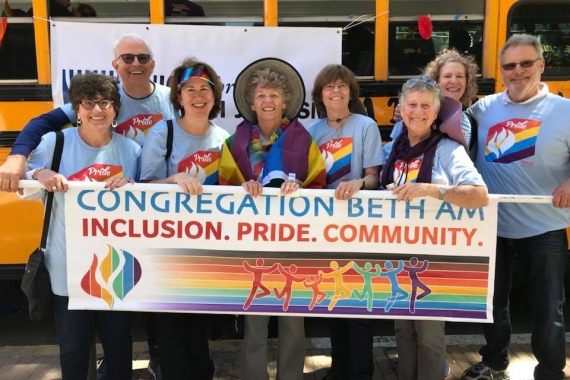
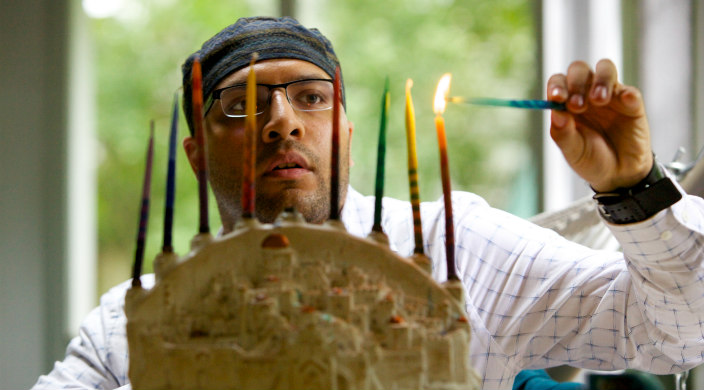
GIVE THE GIFT OF TIKKUN OLAM
Honor a Jewish hero for justice by making a tax-deductible gift to the Union for Reform Judaism in his or her name. Your gift will provide funding for creative Reform Jewish programming and help ensure the continued growth and strength of Reform Judaism.
What's New

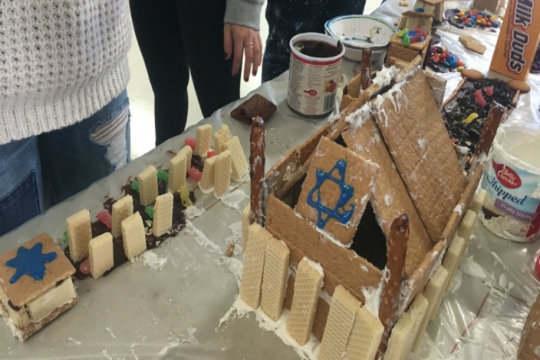
This Hanukkah, Bring the (Edible) Shtetl to Life for Teens
